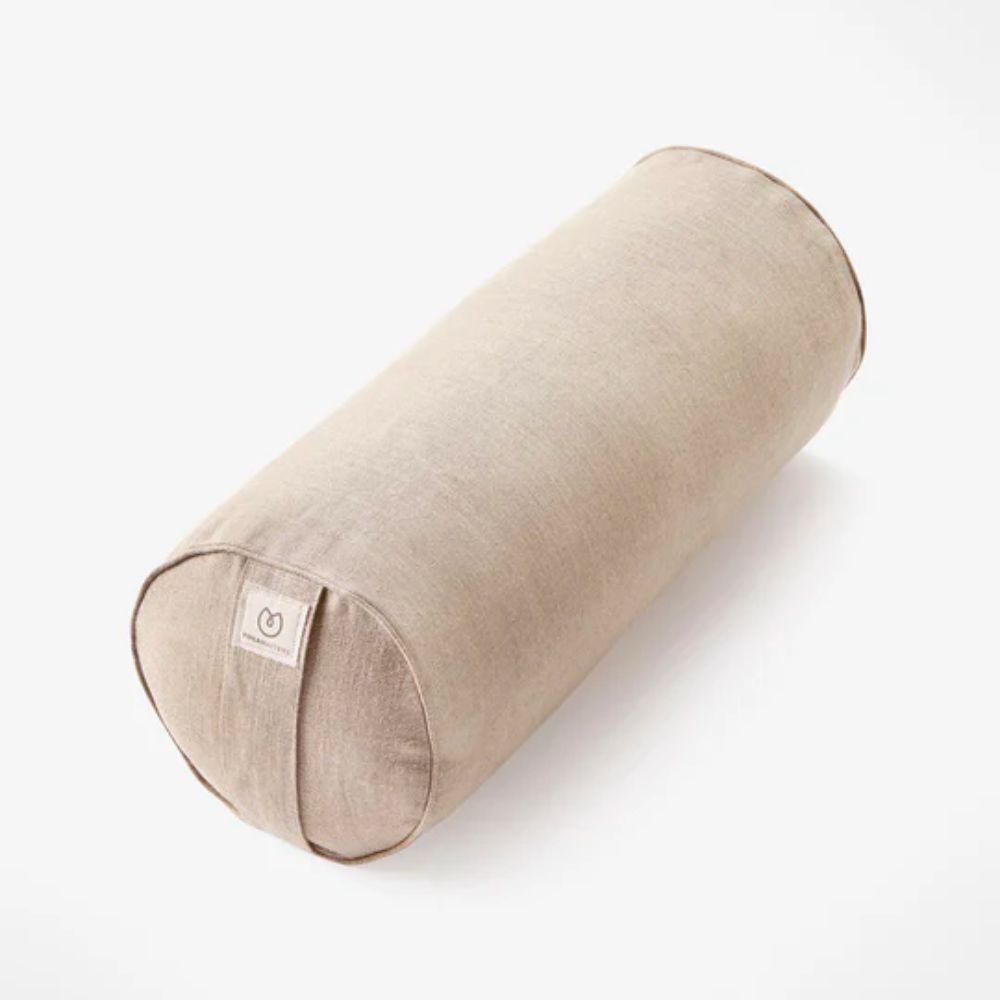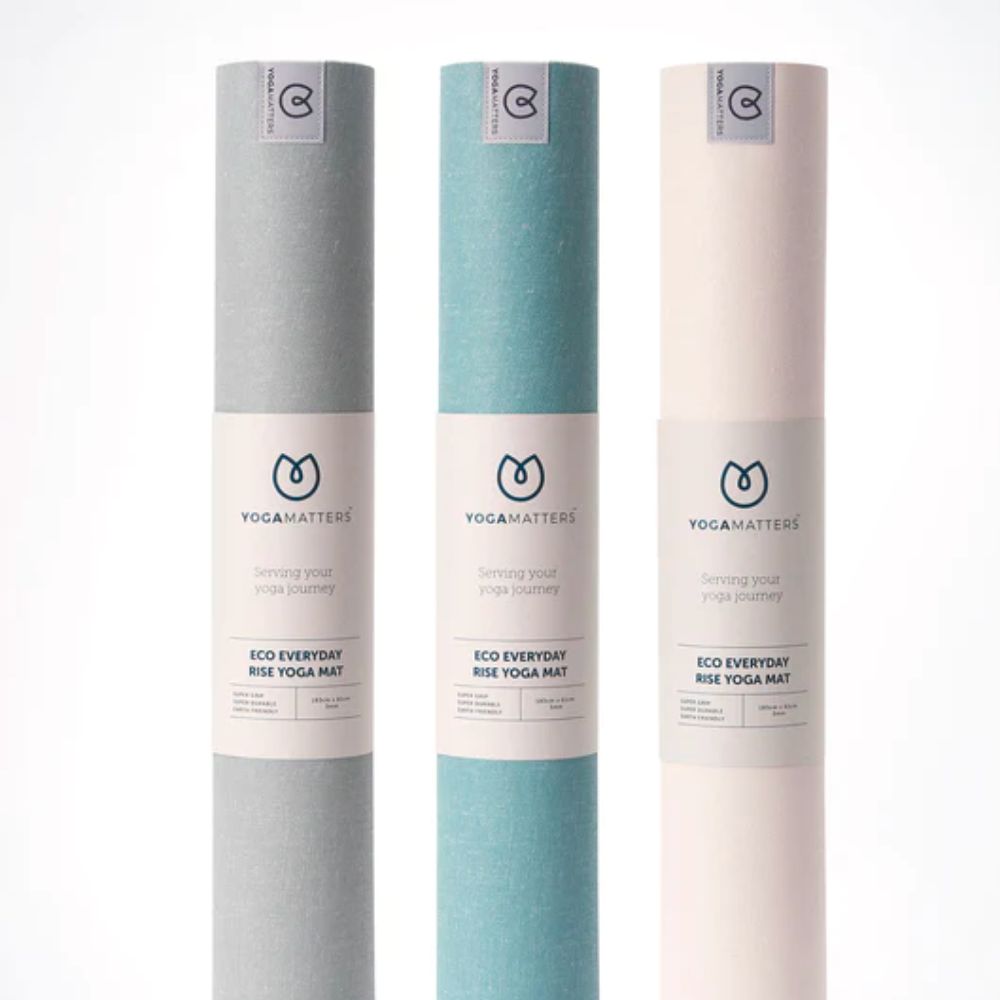I suffered from insomnia for years - now, I nod off in minutes thanks to this simple technique
Ever heard of body scan meditation? It's the only thing that's helped me get those zzzs.


As a long-time meditator-turned-meditation-teacher, I'm often asked what my top tips are. While I have plenty for reducing stress and boosting calm, the one technique I've sworn by for years - that also happens to be my secret to nodding off to sleep within minutes - is body scan meditation.
While meditation was once thought of as a bit woo-woo, it's hit the mainstream in recent years with the likes of Oprah Winfrey, Beyoncé and Lady Gaga all swearing by the practice to support their wellbeing. While the benefits of meditation are well known, it seems to be rising in popularity because, in an increasingly busy and stressful world, it promises to offer a moment of calm any time, any place.
As a meditation practitioner, I see clients turning to meditation for a number of reasons but poor sleep is always one of the most common struggles. With the NHS reporting that around every one in three people in the UK experience insomnia, it's fair to say poor sleep is a universal struggle. Whether you're having trouble getting off to sleep, staying asleep, getting enough hours of sleep or good quality sleep, trust me when I say body scan meditation is a total game-changer.
Want to know more about this revolutionary sleep meditation and the science behind why it could have you nodding off in minutes? Read on...
Your guide to body scan meditation and how it could help you fall asleep fast
What is a body scan meditation?
In short, body scan meditation is a mindfulness exercise that aims to better your body-mind connection and help you to relax. While lying down with your eyes closed or a soft gaze, you'll begin by paying attention to each part of your body one by one. For example, you might first focus on your feet, then your ankles, then your calves, slowly making your way to the top of your head.
As you mentally scan the body, you might begin to notice sensations like warmth, coolness, tingling or tension.
The idea is that you'll become aware of these sensations without judging them, and allow any tension to melt away before simply moving on to the next body part and the next sensation.
Celebrity news, beauty, fashion advice, and fascinating features, delivered straight to your inbox!
6 benefits of body scan meditations
The benefits of meditation are well documented, with research showing that the practice can help to reduce stress, boost mood and better our compassion for ourselves and others.
When it comes to meditation for sleep, though, studies show that it can do more than just help us nod off faster at night. One study in 2020 found that meditation improved participant's sleep quality, and a 2019 study showed mindfulness meditations such as a body scan exercise could support those with sleep disturbances.
Maud Eeckman, mindset coach, yoga practitioner and founder of Women of Wellness, confirms that body scan meditations are a great way of switching off. "We live pretty disconnected from our bodies and our breath," she shares. "We also live very stressful, sedentary lives so it's common for tension to accumulate in the body."
Yoga is also great for releasing tension, if you have time during your day - our favourites are Ashtanga yoga and Iyengar yoga, not forgetting yoga for lower back pain, too.
"I suffered from insomnia for years - now, body scan meditation has changed the game with getting to sleep fast."
"How long does it take you to fall asleep at night?" a friend asked me recently. "A couple of minutes," I replied. She laughed. I was confused. I had forgotten that I was now one of the lucky few who dozed off within minutes (sometimes seconds - please don't hate me) of my head hitting the pillow. But, it hadn't always been this way.
I spent a lot of time in my teens and early 20s with sleep anxiety, struggling to fall asleep at night and stay asleep. I tried every trick in the book and every sleep aid under the sun, but nothing seemed to work. And then gradually, over time my sleep improved and the memory of sleepless nights faded away.
Despite meditating for almost ten years and practicing as a meditation teacher for two, it was only recently that it dawned on me how my meditation practice has supported my sleep over the years - and now I credit it all to the body scan meditation.
I discovered the technique at school and I've been doing it on and off for years. More recently, it's firmly secured a place in my nighttime routine and I'm asleep before I've even finished the practice. Not only does it give me something to focus on to slow the chatter of my busy mind and doze off, but it also helps me to release any tension I've been holding in my body throughout the day. I can notice the tension, become aware of it, take a deep breath and let it go out. It's incredibly cathartic and by adding a little breathwork into the mix I'm signalling to my nervous system that it's time to relax and get ready for rest.
I now recommend body scan mediations to all my clients with sleep struggles. It might take them a few nights to get comfortable with the practice, but when they do it's a total game-changer. More often than not they're asleep before they've even finished the practice - and if that's the goal of your meditation practice, that is totally ok.

Ciara now swears by body scan meditations for getting to sleep fast.
How to do a body scan meditation
So, how do body scan meditations work? Well, by bringing the focus back into the body and helping you to understand how you're feeling. "Once you can bring awareness to the body, you'll learn more about where your tension lies, allowing you to start to heal any discomfort," Eeckman continues.
Of course, if you're suffering from any pain within the body, do reach out to a medical professional for advice. That said if the discomfort is related to tension that's built up throughout a stressful day, a body scan could help to release this tension and allow your body and mind to relax before bed. Give the following steps a go tonight or follow the handy video from Jon Kabat-Zinn, founder of the popular Mindfulness-based stress reduction programme. It's a personal favourite of mine as Jon gently guides you through the practice, as you gradually move your awareness up the body. I love the use of the breath here as a tool to release any tension you notice as you mentally scan your body.
- Lie down on a bed, sofa or yoga mat and gently close your eyes or focus them on something in front of you and let your gaze soften.
- Take three to five deep breaths, inhaling through the nose and exhaling through the mouth.
- Begin to become aware of the contact your body is making with the bed, sofa or yoga mat beneath you as you allow your breath to return to its normal rhythm.
- Allow your body to start to relax and bring your attention to your feet.
- Notice any sensations you are feeling in your feet - any warmth, coolness, tingling, comfort, discomfort or tension. Allow yourself to notice it and become aware of it, but don't judge it.
- Now move your attention to your ankles, and then to your calves, repeating the above as you slowly work your way up your body becoming aware of each body part.
- If you feel any tension at any point, take a deep breath and see if you can let the tension melt away.
- When you've slowly made your way up the body to the top of the head, see if you can tune into the body as a whole and check in with yourself and how you're feeling. And, if you fall asleep before you finish the exercise, don't worry!
Eeckman also suggests adding an element of breathwork into your body scan meditation. I can certainly vouch for this as someone who practices breathwork regularly (it's incredibly calming and grounding). "It could be as simple as inhaling for a count of four, and exhaling for a count of six to stimulate the vagus nerve and activate the parasympathetic nervous system that lowers our heart rate and breathing rate, and brings us into a relaxed state," she shares.
Meditation aids to shop now

Why I love it: A recent addition to my meditation practice, I prop this bolster under my knees for extra support during my meditation practice - and, I use it for yin yoga, too. It's made from one of the most sustainable materials, hemp, and can be filled with natural buckwheat hulls or recycled polyester.

Ciara McGinley is a freelance journalist, editor and mindfulness meditation practitioner. She covers health, wellbeing and lifestyle topics for her favourite women's lifestyle publications including Marie Claire, Stylist, Red Magazine and Woman & Home. She's all about betting that mind-body connection, and takes her self-care and night-time routine very seriously... When she's not writing or teaching meditation, you'll find her trying out the latest wellness trend, or escaping London for a hiking weekend.

